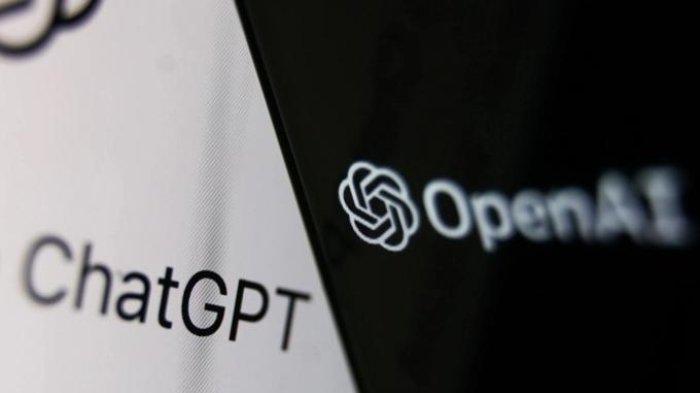Research Shows: ChatGPT Users Experience Decreased Brain Activity
Korean Rumit, TERNATE - According to the research results, users of ChatGPT may experience a decrease in brain activity.
As reported by KOMPAS.com, the presence of artificial intelligence-based tools such as ChatGPT has actually had negative impacts on the human brain.
The large language model (LLM) chatbot can reduce a person's critical thinking ability, especially if used continuously without being balanced with independent thinking processes.
The research team from the Massachusetts Institute of Technology (MIT) uncovered this finding.
Led by Dr. Nataliya Kosmyna from the MIT Media Lab, researchers have found that groups regularly using ChatGPT assistance in writing essay tasks actually experienced a significant decrease in brain activity.

Tested on three different groups
In the study titled "Your Brain on ChatGPT: Accumulation of Cognitive Debt when Using AI Assistant for Essay Writing Task", this testing was conducted by involving 54 students residing in the Boston area, US.
All the students were divided into three different groups, and each of them was asked to write an essay within 20 minutes using different assistance methods.
The first group is called Brain-only. As the name suggests, this group is required to write an essay without any assistance from any tools, including ChatGPT.
The second group is the search engines. This group is allowed to write essays using tools from search engines available on the internet.
The third group is ChatGPT. In the testing, this group was asked to fully write an essay with the help of the AI chatbot GPT-4.
These three groups were then directed to write essays while their brain activity was recorded.
The recording is done by attaching a monitoring device in the form of an electroencephalogram (EEG) headset to their head.
This EEG device will later record the brain activity of each user, including their concentration levels and cognitive workload during the essay writing process.
This testing was conducted four times over several months. The results of these recordings became the main basis for analysis by the researchers to see how much the brain activity differs among groups that write essays using different assistance methods.
In addition to using tools, the results of this analysis are also determined by the essay writing that is analyzed linguistically and directly evaluated by human teachers as well as AI agents. Participants also need to conduct interviews after the writing session is completed.
Although this study has not yet undergone the peer-review process by other researchers outside of MIT, the initial results found by the MIT Media Lab team are said to be quite surprising.
Apparently, the EEG analysis results showed that the group using the ChatGPT aid as a whole experienced a 55 percent decrease in brain activity compared to the group writing essays without any aid.
This means that someone who continuously uses ChatGPT becomes passive in brain activity.
There is no room for independent thinking because almost the entire process is done by AI.
When compared to groups that use search engines, this group shows slightly less brain engagement, ranging from 34 percent to 48 percent.
Meanwhile, researchers mention that for the group that wrote essays without any aids, it showed the highest brain engagement activity.
For, during the writing process, they truly rely solely on their own brain's capabilities without AI interference.
"The Brain-only group relies on more extensive and distributed neural networks for internally generated content," explained the MIT research team, quoted by The Register.
"The Search Engine group relies on a hybrid strategy from visual information management and regulatory control, and the LLM group optimizes the procedural integration of AI-generated recommendations," they added.
According to researchers, this difference in activity levels can have "significant implications," especially for educational practices and how individuals, particularly students, understand learning.
The research team found that testing the use of ChatGPT for writing essays apparently also had an impact on their memory of the essays they had previously written.
In this study, we show the urgent problem of the possible decrease in learning skills.
"Participants in the LLM group performed worse than their peers in the Brain-only group at all levels," said the research team.
This finding was obtained after researchers swapped the instructions between those groups.
The group initially asked to write essays without any AI assistance is now being switched and given full access to use ChatGPT. Conversely, the opposite is also happening.
There were also results that turned out to be quite striking. Participants from the group that usually relies on AI for writing essays reportedly experienced difficulty in composing their own writings.
"In Session 4, the removal of AI support significantly disrupted participants from the original LLM group," explained the research team.
While for groups that have been accustomed to relying on their own brain power (Brain-only) in writing essays from the very beginning, there is a significant increase in brain connectivity.
"The group called Brain-to-LLM showed a significant increase in brain connectivity across the entire EEG frequency band when allowed to use the LLM on a familiar topic," researchers said.
There is also an impact that not only affects thinking ability, but also memory, as summarized by KompasTekno from The Register on Saturday (6/28/2025). (*)
Post a Comment